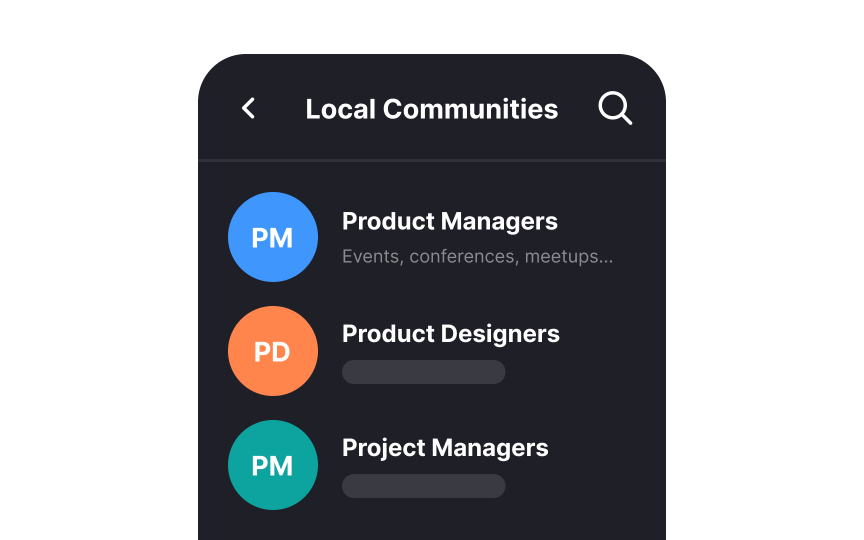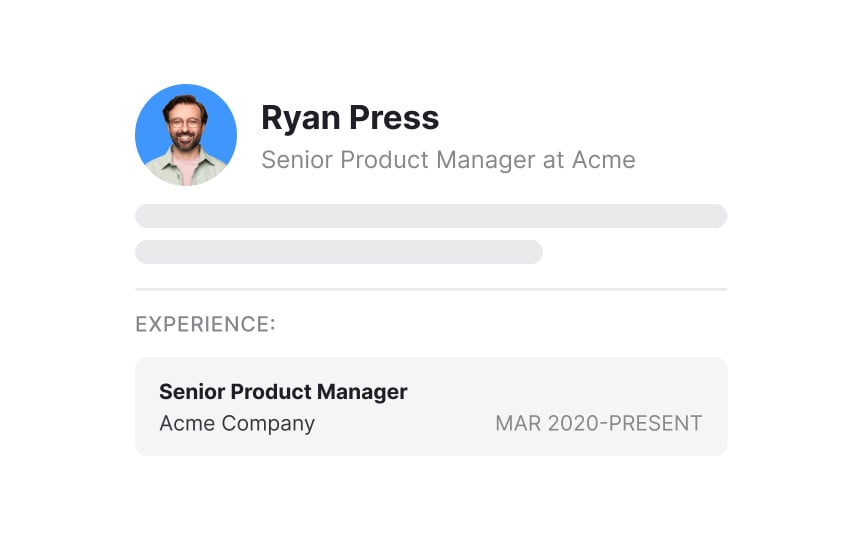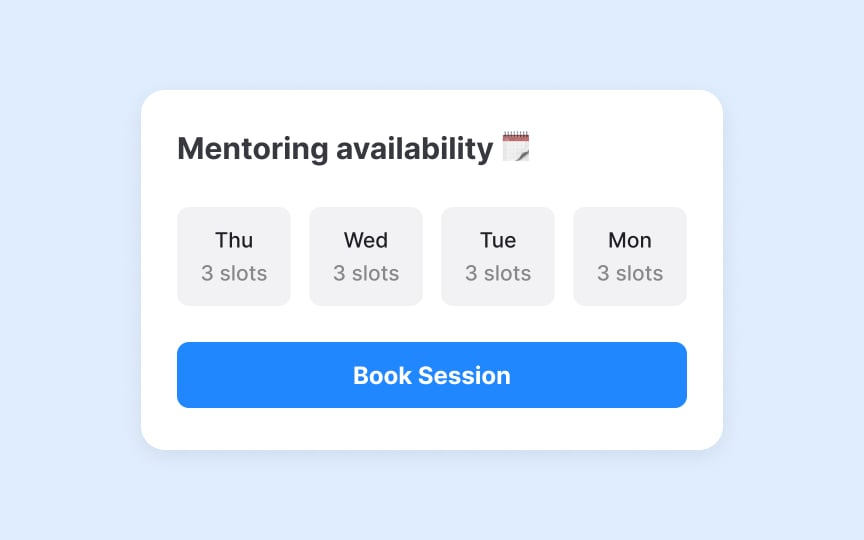How to Find a Mentor
Explore effective strategies to identify and connect with potential mentors who align with your goals and aspirations
Finding a mentor in any professional field can be a challenging task. Be prepared to commit some time and effort to investigate online platforms, professional communities, or industry forums. Regardless of how and where you find your mentor, don't hesitate to ask questions about everything that's on your mind. Tell your story first and ask the person to share their background and level of expertise. One of the most important recommendations is to feel comfortable around your mentor since you'll have no obstacles in sharing your ideas, fears, and challenges when you get along with a person.
Finding the right mentor is sometimes as hard as finding a good financial advisor. You want to be mentored by someone you can trust and who has relevant expertise in areas you want to improve.
In this case, online platforms like LinkedIn and Fishbowl offer many benefits:
- You don't need to leave your desk to discover mentors from any country in the world.
- You can customize the search and find a mentor who speaks your language and has the right stack of expertise.
- You can open a mentor's profile, learn about their experience, read reviews from other mentees, and reach out to them via DM or email.
If you have a way with words and don't mind approaching random people and starting a conversation, explore local communities. These could be local events, conferences, or meetups where you can find experts from different industries who are happy to share their experiences.[1]
You may even approach a person at work whose work you're familiar with and admire or a conference speaker whose presentation made an impression on you. Before you start discussing what's important to you, establish a rapport and make sure they don't feel like they're being interrogated.
You might have a list of people whose thoughts and projects make you whisper, "I want to be like you one day!" Congratulations, they are your indirect mentors. We recommend creating a list of indirect mentors immediately if you don't have one already.
The internet is full of professionals who share their product work, ideas, findings, and sources of inspiration for free. They might be too busy for direct mentorships and decide to be helpful to larger communities of beginners. Sure, they can't answer your specific questions and keep in touch with you permanently, but they may have already covered some of your questions in their interviews, articles, or podcasts.
Listen to product-focused podcasts and read blogs to find people who inspire you. Ultimately, you might find and follow them on Twitter, LinkedIn, or Instagram to be up-to-date with their professional insights.
Finding a mentor is like dating — you need to know a person first before committing to a serious relationship. Regardless of where you're
Pay attention to a potential mentor's:
- Background
- Expertise
- Skills
- Companies and clients they have worked with
- Portfolio
Make sure you have something in common with the mentor in terms of background, interests, skill sets, or industries. You may also approach them if you admire their experience and work samples or want to land a job at a company they’ve worked for.
Assuming that any senior professional can be a mentor for a junior is a dead end. People from the product industry may have different backgrounds, skills, and career orientations. For example, one product manager might excel at market research and strategic planning while another may focus on analyzing user feedback, building product roadmaps, and coordinating cross-functional teams. In other words, they may have one job title but different roles.
Before you commit to a
A product professional's body of work can tell you more about their expertise than a thousand words could. If you can find your potential mentor's portfolio, case studies, or presentations on their personal website or professional platforms, take a closer look and evaluate them from different angles.
Ask the following questions about your mentor:
- What industries have they worked in?
- Were these projects international or local?
- Evaluate their product approach — do you like their problem-solving methods, strategic thinking, and implementation tactics?
Depending on the job role, a portfolio's content may vary. For example, a professional
When you're looking for a mentor, don't be afraid to ask questions to prevent miscommunication and save your time and energy. Being a mentor is more than just possessing enough skills and being a professional in your industry. First of all, the person should be willing to teach others and know how to do it constructively.
Second, they should have time for
Third, all questions about the mentor’s compensation must be discussed beforehand. Generally, mentoring implies a non-commercial relationship. They're not tutors — they share their knowledge out of a genuine desire to help the next generation of specialists grow. However, depending on their experience, proficiency, and level of commitment, some mentors may offer paid services, and it's better to ask them about it upfront before you set your expectations.
These days, having a mentor from a different country and time zone isn’t a big issue. However, it’s important to discuss your schedule with your mentor. You both have lives and can’t always arrange a spontaneous Zoom chat. Also, you might be an early bird while your mentor prefers working late into the night.
Try to be flexible and adjust your schedule to meet online or offline once or twice a week, and spend that time productively. If you have an emergency and can't meet your mentor at the scheduled time, let them know as soon as possible. In case of a true last-minute emergency, send a brief message explaining the situation without oversharing personal details, apologize for the inconvenience, and suggest a few alternative times to reschedule. Most professionals understand that unexpected situations arise, but they'll appreciate your professionalism in handling the situation and your respect for their time.
References
Top contributors
Topics
From Course
Share
Similar lessons

Share & Collaborate on Figma

Mentorship Program
























